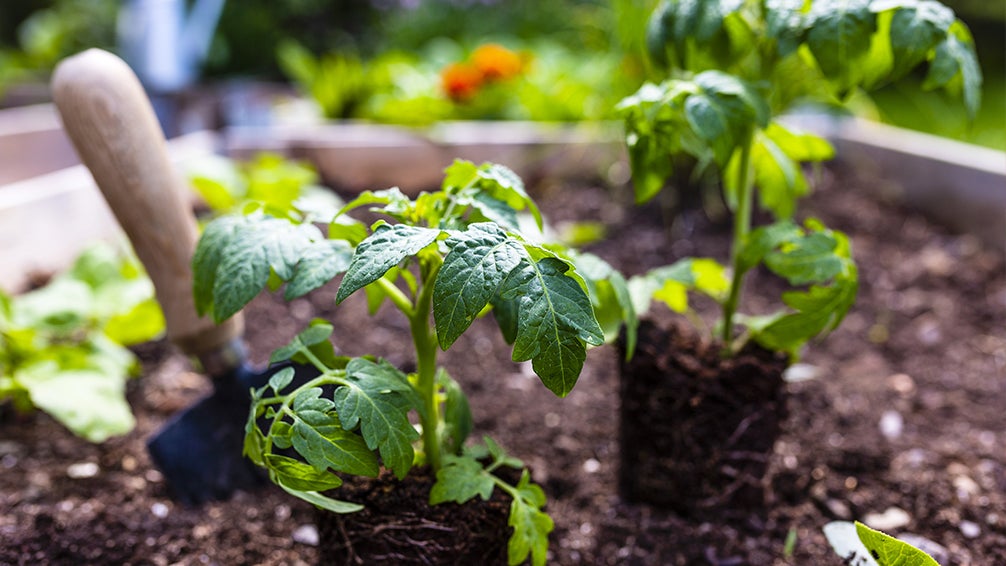The 10 Best Gardening Tips for Spring

As the days grow longer and temperatures warm, it is time to start a garden. Gardening is a terrific way to grow your own food. You will often discover that the food you grow in your own garden tastes better than anything you buy from the grocery store, and it can help you save money.
Before you start, consider these 10 gardening tips. Each one has been carefully chosen to ensure that you have success in your garden.
Consider your growing zone
Different plants grow better in various zones. Therefore, you should know your growing zone. Some areas, such as those in the Southern U.S., will have the best luck gardening in the late winter and fall, while others, like in the Northern U.S., will have a very short growing season.
Get a soil test done
Most plants need phosphorus, potassium, calcium, magnesium, sodium, sulfur, manganese, copper, and zinc to thrive. Your soil needs to be pH-balanced. Therefore, getting a soil test done or using an at-home kit can help you determine whether your soil is healthy enough to support a garden.
Prepare the ground
After getting the soil test results, you will know if you need to add nutrients to your garden. If your ground contains a lot of clay or sand, you will need to mix soil into the ground and till the soil so that your plants can get started.
Use heirloom seeds
Heirloom seeds have been passed down through generations. The advantage of using them is that you can collect and plant the seeds again next spring. Therefore, you must only purchase seeds once.
Consider the type of plant
Some plants spread rapidly, while others are climbers. You need to know which type of plant you are planting. Then, provide structures for climbers to grow on. You also need to figure out how to contain those that spread rapidly so they do not overtake your garden.
Grow companion plants
Especially if you are short on space, growing companion plants allows you to produce more food in less space. Growing the right plants close together also helps with weed control. One popular option is to plant corn in the center of a four-foot mound. Let the corn grow to be about 12 inches high. Then, plant four pole beans around it. Wait a week and plant six summer squash seeds around the beans.
Weed regularly
While growing companion plants helps preserve soil moisture and prevent weeds from growing, you may still need to weed regularly. When weeding, ensure that you get the weed's roots so that it cannot grow back again. You may also need to remove plants that do not thrive, as you do not want them spreading disease or pulling nutrients out of your soil.
Encourage pollinators
Most garden plants need to be pollinated. Therefore, you must encourage bees, butterflies, and other natural pollinators to visit regularly. A great way to do this is to surround your garden with flowers that attract them, like butterfly bushes, coneflowers, and sunflowers.
Water plants deeply
Each plant needs a particular amount of water. You should never water in the day's heat as the water evaporates too quickly. In addition, never put water directly on the produce. Instead, water at your plant's base. If you did not choose to surround plants with companion plants, mulch around their roots can help preserve ground moisture so that you can water less often. When designing your garden, put plants with similar water needs in the same area so you can water your garden by zone. Remember that you may not need to water if it has rained recently.
Release predator insects
Watch your plants carefully and release predator insects if they are under pressure from pests. Using them ensures that you do not have to use broad-spectrum pesticides that harm the environment. For example, ladybugs eat aphids, a common problem on tomatoes, while predatory mites eat spider mites, which can harm summer squashes. Releasing predator insects in the morning is a good idea because they are most active then. If you release them mid-day, they are more likely to disperse, and you will not get the desired results.
By following these tips, you can grow food successfully and be proud of your accomplishments. In addition, you may have extra to bless your neighbors with or donate to a local food pantry. Gardening is a fun and productive hobby.